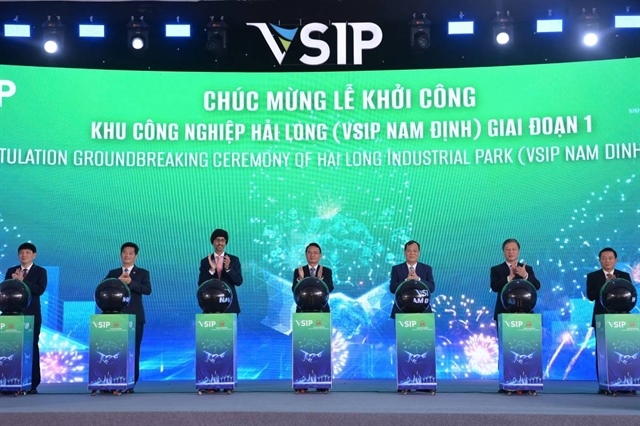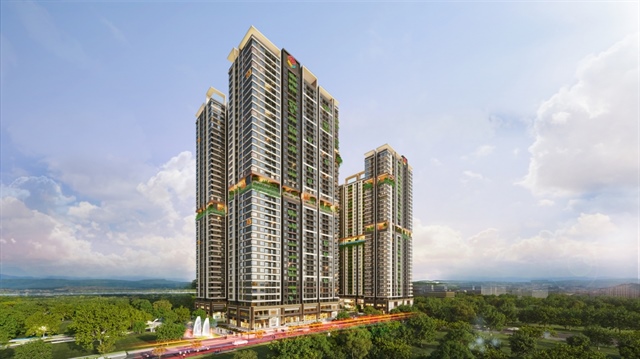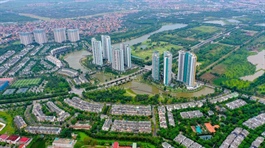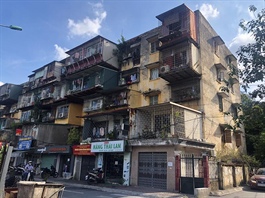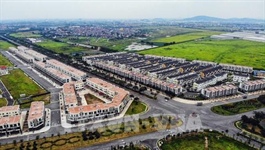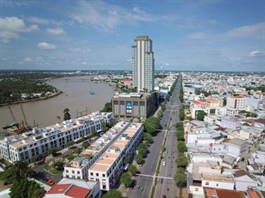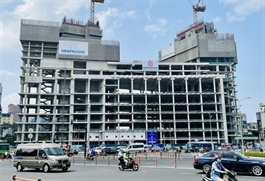New policies aimed at encouraging foreigners to buy houses in Vietnam
New policies aimed at encouraging foreigners to buy houses in Vietnam
The Ministry of Construction, per the recommendations of the National Assembly, is introducing new policies regarding foreigners' ownership of houses and apartments in Vietnam.

The Ministry of Construction, per the recommendations of the National Assembly, is introducing new policies regarding foreigners' ownership of houses and apartments in Vietnam.
Specifically, the time limit for ownership of apartments for foreigners has been removed. Currently, the ownership time limit is 50 years.
According to the Ministry of Construction, the policy allowing foreign organisations and individuals to purchase and own houses in Vietnam is stipulated in Resolution No. 19/2008 of the National Assembly.
The Housing Law of 2014 supplemented specific regulations to create favourable conditions for foreign organisations and individuals to reside and work in Vietnam, contributing to attracting foreign investment.
The draft amendment of the Housing Law inherits the provisions of the Housing Law of 2014 and clearly defines the conditions under which foreign organisations and individuals can purchase and own houses in Vietnam.
According to the Ministry of Construction, since the Housing Law of 2014 came into effect, the number of houses purchased and owned by foreigners in Việt Nam has been relatively low, at around 3,000 units, mainly condominiums in commercial housing projects, without affecting the housing demand of domestic citizens.
In addition, the draft amendment of the Housing Law has tightly regulated the types of houses and areas eligible for purchase, and the number of houses allowed to be purchased and owned in a housing project.
For example, foreign organisations and individuals are only allowed to purchase commercial houses in projects that are not located in areas requiring security and defence assurance. They can purchase no more than 30% of the apartments in a building or 250 individual houses in an administrative unit with an equivalent population size of a ward.
Therefore, the Ministry of Construction said the provision allowing foreigners to purchase houses does not affect the implementation of other housing policies of the State, such as social housing policies, resettlement housing, or affordable housing in urban areas.
On the other hand, Resolution 18 of the Central Committee does not mention regulations on foreign organisations and individuals purchasing houses in Vietnam, so the Ministry of Construction proposes to maintain this provision in the draft amended Housing Law.
According to delegates at the National Assembly in a meeting on June 19, encouraging and allowing foreigners to own properties in Vietnam requires debate and work to be done in assessing the pros and cons.
On the morning of June 19, during a discussion regarding the draft amendment of the Housing Law, deputy Tran Chi Cuong from the central city of Da Nang expressed his opinions on the provisions regarding foreign organisations and individuals being allowed to purchase and own houses in Vietnam.
Cuong stated that although the draft law does not clearly specify whether foreign organisations and individuals have the right to own houses associated with land ownership, this issue has not been clarified and may not be consistent with the draft amendment of the Land Law, which regulates that land users who are eligible for land use transfer do not include foreign individuals.
Furthermore, the draft amendment of the Real Estate Business Law stipulates that when foreign individuals purchase houses from real estate developers according to the provisions of the Housing Law, and when foreign organisations and individuals purchase projects according to the provisions of the real estate business law, the relevant contents regarding land use rights associated with houses and construction projects shall be implemented according to the Land Law and the Housing Law.
In addition, the draft also said that foreign individuals allowed to enter Vietnam are eligible to own houses in the country.
"Such provisions are too broad and require further study and consideration. It is especially important to consider whether foreign individuals allowed to enter Vietnam for tourism are permitted to own houses," said Cuong.
"Moreover, does this regulation conflict with the Law on Entry, Exit, and Residence of Foreigners in Vietnam? Because according to the draft amendment, the duration of the visa granted to foreign guests is 90 days, except for certain cases such as labour or investment, with a maximum of five years for investors.
"If they are allowed to own houses, can those who are granted short-term visas of less than one year stay in Vietnam after the visa expires? This issue needs to be carefully examined and studied to avoid international disputes and conflicts," said him.
According to him, foreigners being able to purchase and own houses in Vietnam is a major, significant, sensitive matter that is closely related to security and defence. Therefore, it needs to be explained in detail and assessed for its clear impacts.


